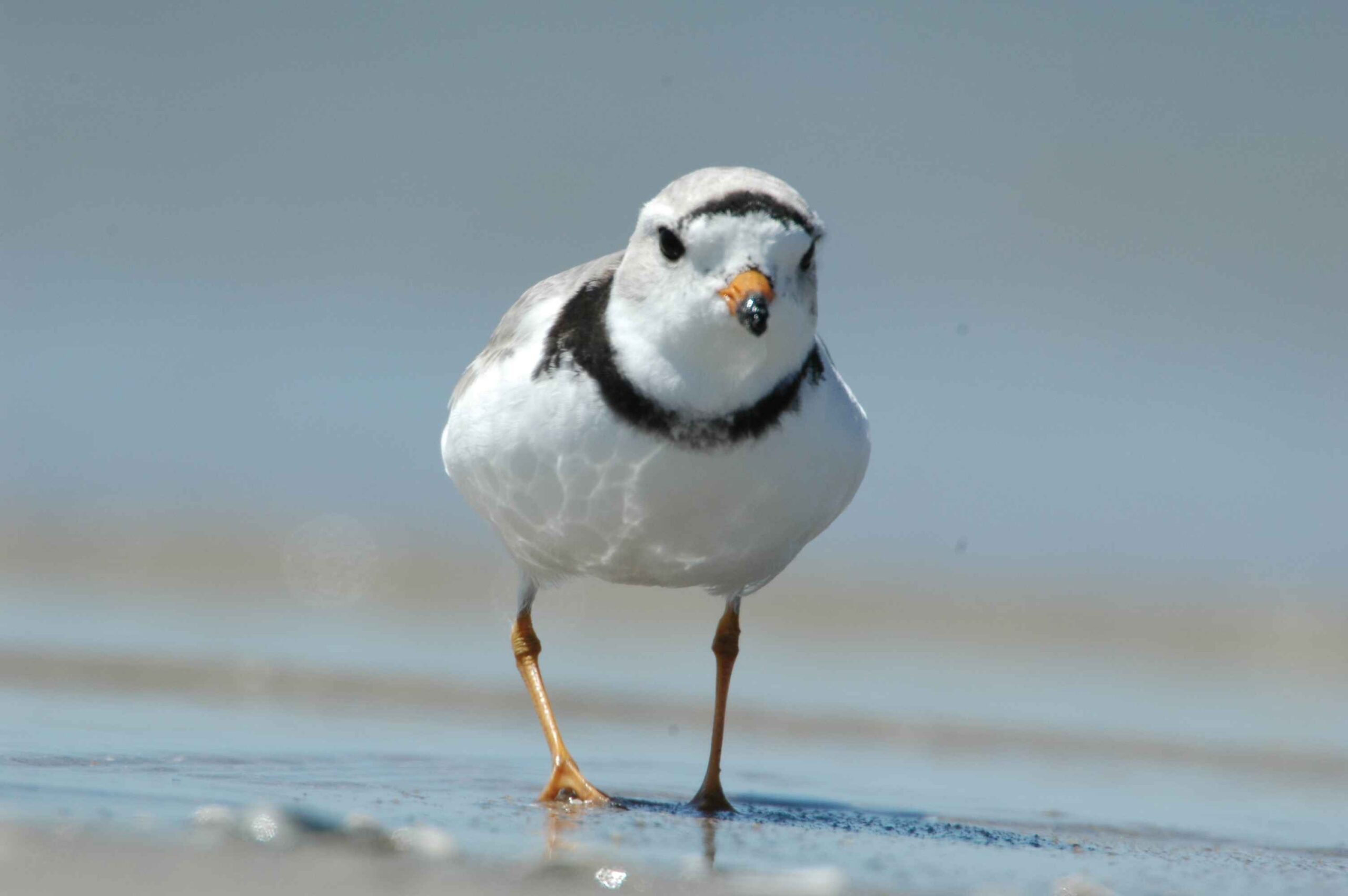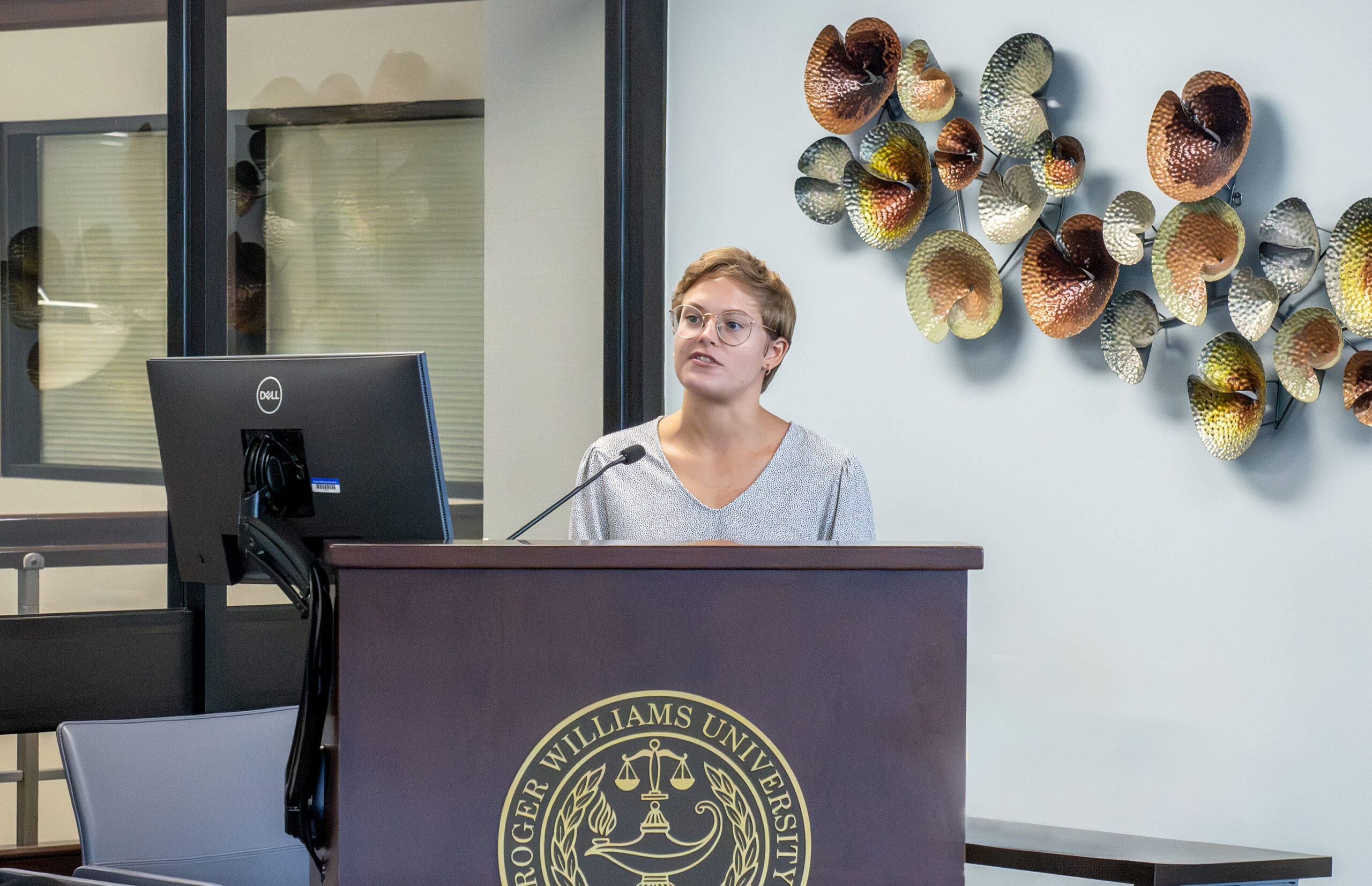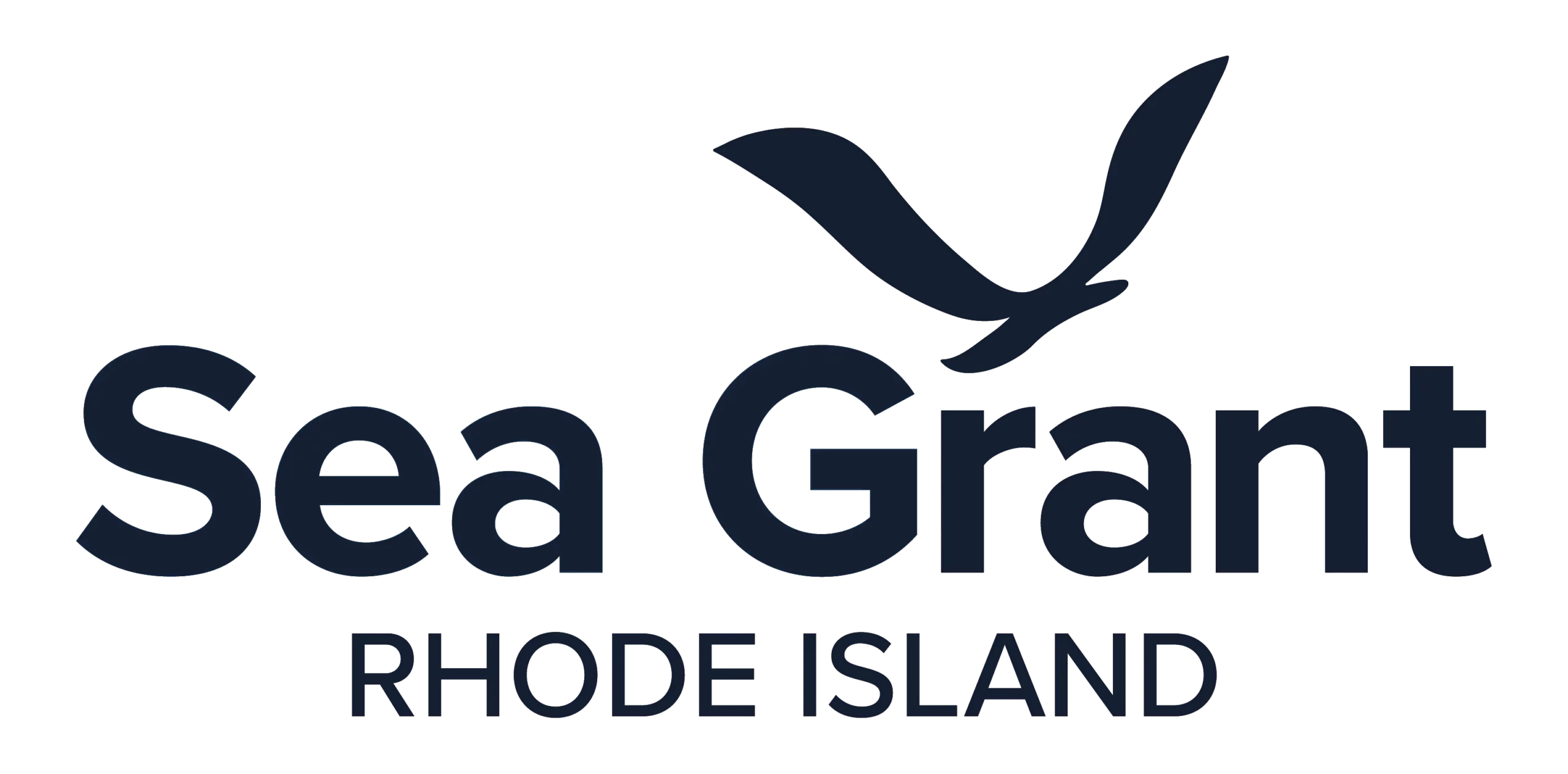Rhode Island Sea Grant Law Fellow Project Looks at Legal Options for Compromise
The tiny piping plover that each summer nests on the shores of Northeast states is having a major impact on keeping residents of one New York City neighborhood from accessing their beach.
Edgemere’s beach in the Rockaways, Queens, is one of the piping plovers’ nesting sites, and to protect them—as required by federal and state threatened and endangered species protections—the New York City Department of Parks and Recreation restricts public access along a mile-long section of the beach during nesting season, which occurs during the late spring and summer months.

Piping plovers nest on beaches throughout the Northeast. But one of their nesting sites is complicating beach access for residents of Edgemere in Queens, NYC, whose local beach is closed seasonally to protect these tiny birds. Photo by Nieminen Gene, USFWS on Pixnio
This is great for the piping plovers, but takes away beach access from the Edgemere neighborhood that abuts the nesting area.
“Edgemere has a long history of … socioeconomic challenges,” says Greta Johnson, adding that the community is “isolated from New York City’s urban center, and it has poor transportation services generally.”
Johnson, a second-year law student at Roger Williams University (RWU) School of Law, this past summer participated in the Rhode Island Sea Grant Law Fellow Program to study the legal landscape that governs the management and conservation of piping plover habitat in Edgemere and how other beach managers have developed their programs. She discussed her work in a presentation at the law school for prospective Law Fellows.

Rhode Island Sea Grant Law Fellow Greta Johnson talks about her project to prospective Law Fellows at Roger Williams University School of Law. Photo by Monica Allard Cox
Johnson identified four categories of strategies, including
- Habitat protection such as fencing
- Prohibition of certain activities such as flying kites and drones and of dogs on the beach
- Predator control such as nest-protection exclosures
- Public outreach and communication
However, beach managers tend to follow the U.S. Fish and Wildlife Service guidelines for piping plover protection to maintain compliance with the Endangered Species Act; for example, this includes that fencing encompass a 50-meter radius around nests.
These rules, along with staffing shortages, limit how creative New York City Parks can be with their strategies.
“Ultimately, there’s a lot of concerns with expanding beach access,” Johnson says. Nevertheless, “New York City Parks has adopted, in the last couple of years, a dynamic management approach, which attempts to balance beach access and conservation by trying to shorten the period of beach closure, so reopening the beach as soon as the last piping plovers have nested, rather than keeping it closed through Labor Day, for example, and then including more access points [such as] some walk-through areas where residents can access beach.”
This Rhode Island Sea Grant Law Fellow project was done with partners from the University of New Haven and the Edgemere Civic Association. The report is available at the Marine Affairs Institute web page on student research.
The Law Fellow Program
The Rhode Island Sea Grant Law Fellow Program is an experiential education opportunity in which Law Fellows research and analyze marine law issues requested by outside professional organizations, under the guidance of Marine Affairs Institute staff.
To learn more about the program, visit the RWU Marine Affairs Institute website or contact Brooke Mercaldi, staff attorney for the Marine Affairs Institute and the Rhode Island Sea Grant Legal Program.
